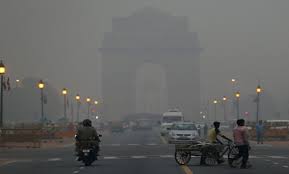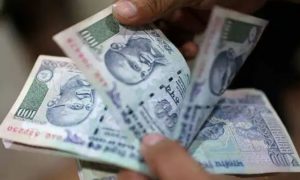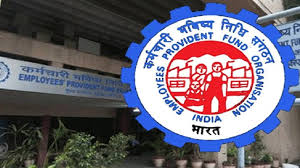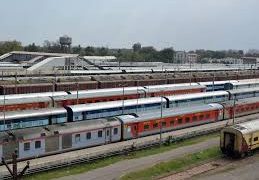New Delhi: India’s retail inflation earlier this week surged sharply to 5.55 per cent in November after falling to a four-month low of 4.8 per cent in October, according to data released by the Ministry of Statistics & Programme Implementation. The sharp rise in retail inflation has been attributed to a hike in food prices. Notably, the food inflation for November registered at 8.70 per cent.
Read More: Rise In Covid-19 Cases: Health Ministry Advises States, UTs To Increase RT-PCR Testing
“Positive rate of inflation in November 2023 is primarily due to increasing in prices of food articles, minerals, machinery & equipment, computer, electronics & optical products, motor vehicles, other transport equipment and other manufacturing, etc.,” the Commerce and Industry Ministry recently said in a statement.
How Inflation Impacted Common Man
Apart from retail inflation, the food inflation went up to 8.18 percent in November, from 2.53 percent in October. Moreover, the inflation in onions went up to 101.24 percent in November, from 62.60 percent in the previous month. Inflation in vegetables was 10.44 percent, as against (-)21.04 percent in October.
Inflation in paddy and fruits was 10.44 percent and 8.37 percent respectively. Inflation in potatoes remained low at (-)27.22 percent in November.
“Going ahead, the inflation outlook would be considerably influenced by uncertain food prices.
Read More: RBI penalties on banks, NBFCs add up to Rs 40.39 crore for 2022-23
High-frequency food price indicators point to an increase in prices of key vegetables, which may push CPI inflation higher in the near term,” RBI Governor Shaktikanta Das had said.
In a recent research, the Barclays said the increase in wholesale food prices was more than in retail food prices, indicating wholesalers did not pass through the entire price rise to consumers, which may be reflected in elevated retail food prices in December unless supply (particularly of vegetables) increases.
How Inflation Impacted Cost of Living
Vikas Singh, chief collection officer, told News 18 that the rising inflation often leads to an increase in the cost of goods and services, affecting the overall cost of living for individuals and families and reducing the affordability of essential items.
“Food inflation, which accounts for around half of the total consumer basket, jumped to 11.51% in July up from just 4.49% in June In July, vegetable prices increased by a staggering 37% year on year, annual food-inflation rate hit 11.5% in July, highest in over 3 years, pushing the overall inflation rate to a 15-month high of 7.4%,” Singh said.
Read More: Delhi Excise Policy Case: ED Summons CM Arvind Kejriwal on December 21
He further added that rising fuel prices directly contribute to inflation by increasing the cost of goods and services. Also, inflation is eating the purchasing power of the income group. If wages are not keeping pace with the rising cost of goods and services, he added.





































